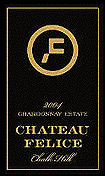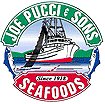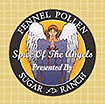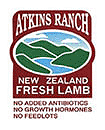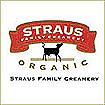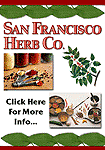
Stratford
University Offers Wine 101:
Tips, Pairing, and Going Organic
FALLS
CHURCH, VIRGINIA - (November 21, 2008) - Americans
drink a lot of wine -- so much, in fact, that the U.S. Census
Bureau reports that $475 million worth of wine was sold in 2002
alone. Whether someone is new to the wine world or not, there
are several things to keep in mind about making the right selection.
When it comes to wine, the more you know, the better off you
will be.
"Wine
is about more than just grabbing a drink and chugging it down,"
says Jeremy Corn, a professor in the Stratford University
Culinary Department's International Wine Guild
(IWG) program. "Knowing things like how it is made and
where it comes from can make for a more fulfilling experience."Some
of the basics to keep in mind when choosing wine for the holidays,
whether as a gift or to serve at a party, include:
·
Storing. As soon as the bottle is uncorked,
the oxidation process begins, which will eventually destroy
the taste. To preserve it longer, invest in a wine-saving cap
to use, once the bottle has been opened.
·
Serving. Use a glass that is large and tapers
slightly toward the top. It should be free of designs or shading
so that the coloring of the wine comes through.
· Swirl. This promotes aeration, which is the release
of strongly aromatic molecules from the wine.
·
Taste. First smell deeply, then sip, then roll
the wine around in your mouth, noting the start, the finish,
and the aftertaste.
·
Pairing. First and foremost, wine and food
pairing is about developing an instinct for what items will
taste best together, and that instinct is learned by understanding
some of the classic pairings. Items like strong bleu cheese
and sweet dessert wines; crisp Chardonnay from the Burgundy
region and Lobster with dipping butter-pairings like these are
often a revelation when tasted for the first time, and help
to build an understanding for why some wines go with some foods,
and why others do not.
·
Organic. Since most grapes are heavily sprayed
with insecticide, people can avoid those chemicals by opting
for organic varieties. Many enthusiasts tout organic wines as
being healthier, environmentally friendly, and having a better
flavor. When choosing organic, look at the labels: "100%
Organic" has a USDA Organic seal, while "Organic"
consists of 95% organically grown ingredients.
"Wine
collecting and tasting is a hobby for many people," adds
Corn. "There is a lot to learn, and it's very interesting.
Plus, people find the more they learn, the better it tastes.
Wine knowledge is especially important when planning for dinner
parties. A little bit of preparation goes a long way."
For
those interested in learning more about wine, or brushing up
on their knowledge, Stratford University is offering 2-day weekend
classes to the public. Students
will learn the basics of wine, including how it is made, where
it originates, tasting, and pairing. The new International Wine
Guild (IWG) is a new addition to the Culinary Arts Department.
Three levels of instruction are offered, with prices starting
at $475.
About
Stratford University
Stratford University has campuses in Tysons Corner and Woodbridge,
Virginia, and online courses are also available. Degrees are
offered in the School of Culinary Arts and Hospitality Management,
School of Computer Information Systems, School of Business Administration,
School of Allied Health and School of Graduate Studies.
For more information about Stratford University, please visit
www.stratford.edu
or call (800) 444-0804.





